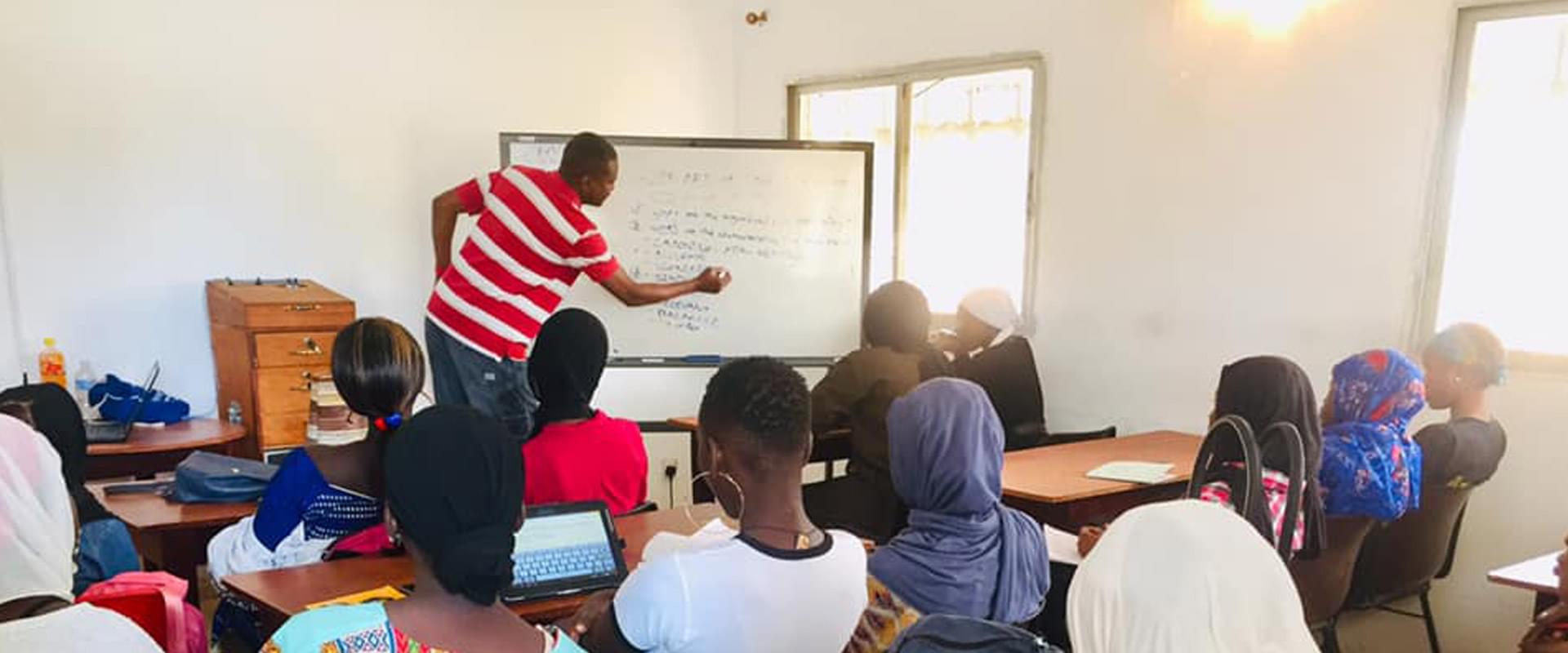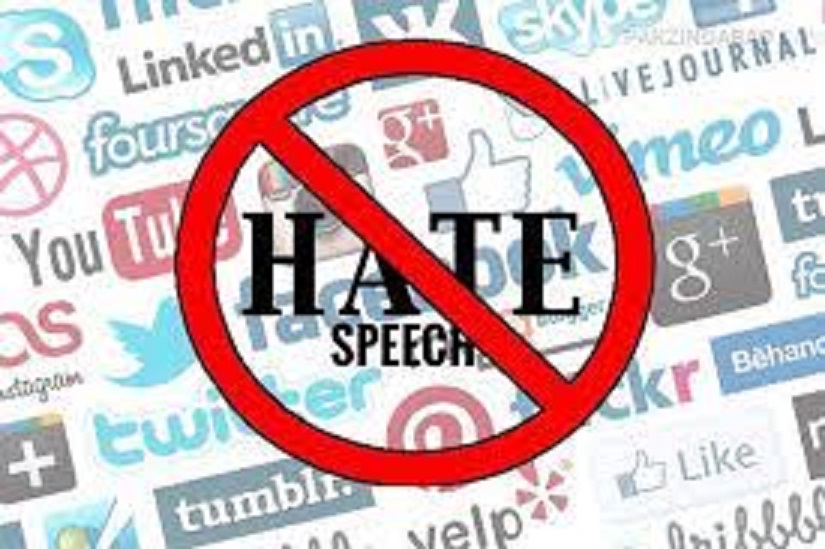
Mar 2, 2022 8:46 AM | Article By: Malick Nyang

Media platforms prone to hate speech publication (Media Education for Equity and Tolerance)
Freedom of expression or referred to as free speech is guaranteed for citizens by the 1997 Constitution of The Gambia, which should not be interpreted as the freedom to incite hostility or promote racial hatred, discrimination or violence. Freedom of expression protects not only neutral ideas or ideas received but also those that offend, shock, or disturb the state or any sector of the population.
Over time, the possibility of stimulating heated public debate with provocative language either formal or informal may continue to develop due to different political perspectives. Politics is the major factor raising hate speech and incitement in The Gambia. Most politicians and supporters are more interested in the opponents’ apolitical life than the programs they have for the country. Sadly, the media is the main engine fuelling all the unwanted speeches and labelling.
Hate speech in The Gambia
Hate speech and languages that incite violence are becoming a rising ‘norm’ in The Gambia for over a decade. This could be traced back to the Jammeh regime when he (former President) would openly dehumanize and insult certain groups of people, religion or other beliefs, that were published and promoted by the then caged Gambian media.
Although, violent speeches and human rights abuses were mostly attributed to his government; especially when he (Jammeh) publicly declared to slit the throats of Gambians who practice gay. Even during the recently concluded 2021 presidential election, Jammeh, while in exile was given a platform at rallies, where he continued hate speech utterances against individuals and groups.
However, hate speech has grown to be a greater concern in the country due to the wider scale it covers today. Recently during the 2021 presidential election campaign, some politicians castigated other politicians based on their religious beliefs and personalities to sway the electorates’ attention from trusting their agenda. Others used inciteful comments against one another to score political points.
The average political understanding in the country has caused many citizens to divert their attention from things that will benefit the country to things that will intensify hatred, violence and disunity in our societies.
Party supporters would speak violently against their opposition. All these hateful expressions would always be picked up and published by the media that resulted in disunity and demoralization, among Gambian citizens. Thus, the media must be well informed as the key player in promoting hate speech whose consequence could always lead to violence.
Consequences of relaying hate speech
The media is powerful enough to jeopardize the peace of an entire nation and could cause a grave danger, if not professionally monitored. For instance, during the 1994 Rwandan Genocide, radio broadcasts played an important role in inciting ordinary citizens to take part in the massacres of their Tutsi and moderate Hutu neighbours. The radio’s influence has shaped greater impact on the genocide, leading to a staggering amount of over 800,000 deaths.
Tackling hate speech
After the 2021 presidential election, The Gambia will head to the polls again on 9th April 2022, for the National Assembly elections and Local Government elections in March 2023, respectively. Therefore, the country would face another phase of different kinds of utterances by politicians canvassing votes; so it is the duty of the journalists and the media to avoid relaying those utterances likely to incite violence in the country.
Journalists and media outlets should engage in editorial write-ups referring to politicians and citizens about the threats hate speech could pose to the peace, security, development and social cohesion of the nation. Journalists can ensure they avoid spreading hate speech during the parliamentary elections campaigns when they focus on reporting issues rather than personality politics.
Speaking to the Secretary General of The Gambia Press Union, Modou Joof said journalists in The Gambia need to avoid relaying hate speech because hate speech may lead to incitement, discrimination, hostility or violence.
He said the GPU in ensuring that media is free from hate speech, trained 60 journalists in October, and 75 in November in collaboration with UN agencies ahead of the 2021 presidential election.
“These trainings provided the platform for journalists to know hate speech by definition and its characteristics but also to be able to play their social responsibility in refraining from reporting hate speech or from fanning hate speech when it occurs,” SG Joof said. “These groups of journalists have acquired the knowledge and skills to tackle hate speech and we are hopeful that during the National Assembly Election period, they will utilize what they have learned,” he concluded.

GPU trained 75 Gambian journalists on hate speech in November 2021 ahead of the presidential election. (Source: The Voice Newspaper)
On how ethics and self-regulation mechanism could help in countering hate speeches, the Managing Director of Media Academy for Journalism and Communication (MAJaC), Sang Mendy said anyone who is involved in media business, (proprietor, manager or journalist) should be ethical enough to avoid hate speech passing through their medium.
Mendy warned that passing hate speech through their medium might affect a significant number of people in the society as the media reaches thousands of people.
“Journalists should not be the vehicle that spreads hate speeches,” he said.
MAJaC MD looks forward to a very responsible media and journalists who would easily trace hate speeches and avoid relaying it to their audience.
“Trace it, track it, know it, and don’t let it pass through your media,” he advised.
A journalist, Fatou C. Sanyang discouraged the utterances of hate speech at all costs because she believes it builds enmity that results in chaos and subsequent conflict.
“Every journalist must be ready to counter hate speech and never to embrace it because, if you do, it reduces your credibility as a journalist,” Sanyang said.
Fatou advised journalists to stay away from disseminating hate speeches, as it is unethical and unprofessional to the job.
The Chairman of the National Human Rights Commission, Mr. Emmanuel Daniel Joof said elections by their very nature are linked with freedom of expression, because that is the time politicians sell their manifestoes and try to convince the public why they should be voted into office.
However, he said freedom of expression could be a double edge sword: “The freedom that gives us that sacrosanct right to express our ideas and views is the same expression that we can use to create havoc and wars.”
Joof recommended journalists to know their substantial role in dealing with hateful languages because hate speech generates human rights violations.
Politicians
The Inter Party Committee (IPC) is the umbrella body of registered political parties and Honourable Amul Nyassi, the Co-chair said a politician should do politics based on an agenda.
“Wherever you see a politician making hate speech, making remarks that could bring disunity, I want to believe that the individual doesn’t have an agenda,” Hon. Nyassi explained.
He said if a politician has an agenda, he does not embark on hate speeches but sells his policies to the electorates.
Nyassi said peace is priceless and could be cheap or very expensive, depending on how one plays his cards.
The Foni Kansala NAM urged fellow politicians to focus on selling their manifestoes and preach peace at all times than otherwise.
“For one to enjoy a leadership role when you’re elected into office as a politician, you should lead a united and stable country, because without peace, unity and stability, it will be very difficult [to lead], regardless of the resources of that particular country,” Hon Nyassi argued.
GPU-UTGSU Research
The Gambia Press Union and the University of the Gambia Students’ Union joint research on the prevalence of Hate Speech in The Gambia Media showed that the media industry is grappling with acute capacity challenges. This could invite questions on the ability of the journalists to report issues or moderate debates around complex or sensitive topics without escalating tensions. However, the research showed that the liberalization of the media space is not a guarantee for the free flow of hate speech, nor does restrictions on media freedoms guarantee that hate speech would be curbed.
The research noted that the growing concern about Hate speech in the country, with the opening of the space for media freedoms, advances in digital technology, increase in Smartphone users and access to social media platforms are laying bare the deep-seated hate and prejudices that exist within Gambian society.
However, as many Gambian journalists have been trained on how and the need to counter hate speech, it is hoped that the media would continue to preach peace and desist from relaying languages that are not fit for public consumption most specifically during election periods.
Meanwhile, the UN Strategy and Plan of Action on Hate Speech stated that there is no international legal definition of hate speech; and the characterization of what is ‘hateful’ is controversial and disputed.
However, the Strategy defined it as any kind of communication in speech, writing or behaviour that attacks or uses pejorative or discriminatory language with reference to a person or a group on the basis of who they are in other words, based on their religion, ethnicity, nationality, race, colour, descent, gender or other identity factor. This is often rooted in, and generates, intolerance and hatred, and in certain contexts can be demeaning and divisive.
The UN Strategy and Plan of Action on Hate Speech (Commitment 5) urged the United Nations system to establish and strengthen partnerships with new and traditional media to address hate speech narratives and promote the values of tolerance, non-discrimination, pluralism, and freedom of opinion and expression; by building partnerships with media, promoting media independence and pluralism, promoting self-regulation and ethical journalism, promoting the protection of journalists and media workers, and building media capacity, with which media would be ready at all costs to relegate any speech not befitting for publicity.
Comments (0)
7 Likes
Leave your thought here
Your email address will not be published. Required fields are marked *